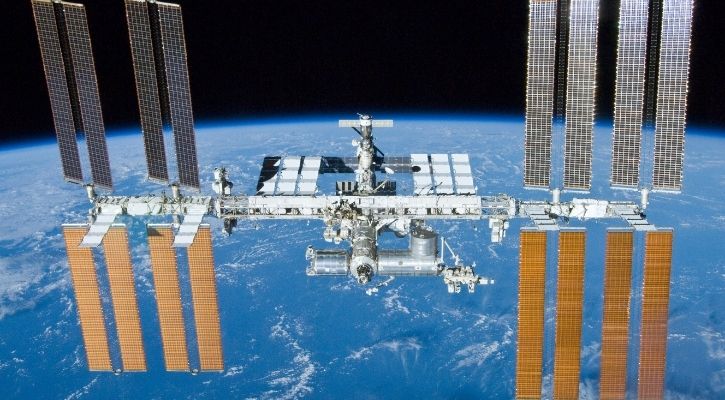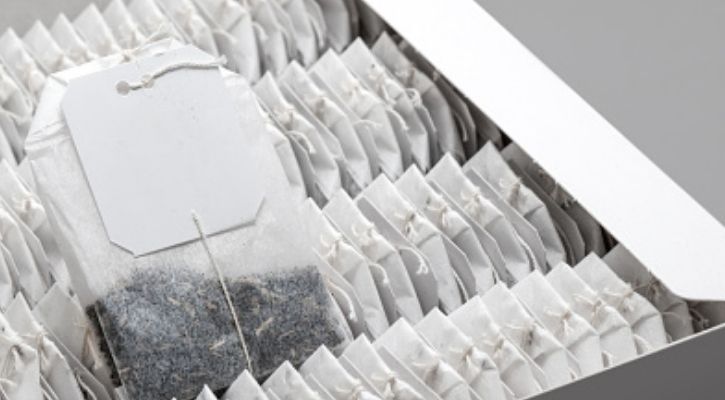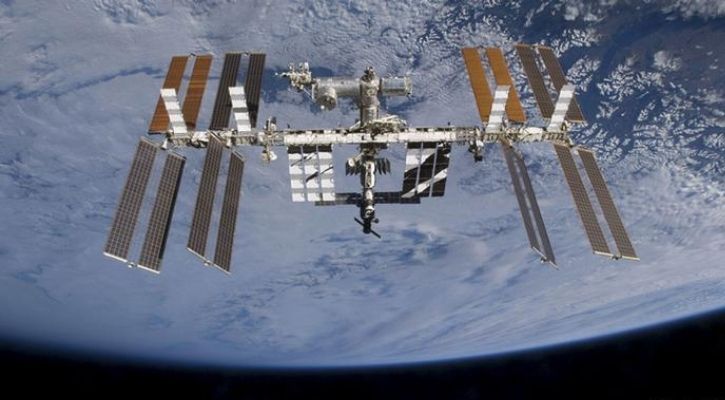Bharat Sharma
Updated on Oct 13, 2021
Highlights
After a leak was found in one of the modules of the International Space Station which usually flies 400 kilometres above the Earth, astronauts were left in a fix trying to find a quick solution in case things were to escalate
Usually, the space station leaks air from some of the modules throughout its journey in Earth's orbit, which takes 93 minutes per orbit
Each day, the station loses more than 250 grams (0.6 pounds) of air each day during its 15.5 orbits around Earth, but that's not always the case, as evident in the case of this leak
The International Space Station is a potential hazard due to many reasons, with its age being one of the key factors. In 2020, astronauts used a teabag to avert a major disaster on the space station by fixing a hole in one of the modules.
After a leak was found in one of the modules of the International Space Station which usually flies 400 kilometres above the Earth, astronauts were left in a fix trying to find a quick solution in case things were to escalate.
Usually, the space station leaks air from some of the modules throughout its journey in Earth's orbit, which takes 93 minutes per orbit. Each day, the station loses more than 250 grams (0.6 pounds) of air each day during its 15.5 orbits around Earth, but that's not always the case, as evident in the case of this leak.

The International Space Station is a potential hazard due to many reasons, with its age being one of the key factors. In 2020, astronauts used a teabag to avert a major disaster on the space station by fixing a hole in one of the modules.
After a leak was found in one of the modules of the International Space Station which usually flies 400 kilometres above the Earth, astronauts were left in a fix trying to find a quick solution in case things were to escalate.
Usually, the space station leaks air from some of the modules throughout its journey in Earth's orbit, which takes 93 minutes per orbit. Each day, the station loses more than 250 grams (0.6 pounds) of air each day during its 15.5 orbits around Earth, but that's not always the case, as evident in the case of this leak.

NASA
How astronauts detected the leak on ISS
Over the days, the station started losing more than a kilogram every day. Astronauts from different countries - USA, Japan, Russia, Canada, and Europe are usually aboard the station. When the leak occurred, they were compelled to look for its source in the station.
To ascertain its source, they sealed all the modules and camped together in one of the extreme end modules of the International Space Station called Zvezda in the Russian part of the station.

How astronauts detected the leak on ISS
Over the days, the station started losing more than a kilogram every day. Astronauts from different countries - USA, Japan, Russia, Canada, and Europe are usually aboard the station. When the leak occurred, they were compelled to look for its source in the station.
To ascertain its source, they sealed all the modules and camped together in one of the extreme end modules of the International Space Station called Zvezda in the Russian part of the station.

Unsplash
Also read: Is ISS Dying? Former NASA Astronaut Says Cracks On Space Station Are Serious
To this end, they tested each section of the space station for leaks over the duration of four days. Unfortunately, their experiment didn't bear any fruits.
The astronauts then realised that the model they were temporarily waiting was the one leaking. The Zvezda module, launched in 2000 is especially important on the ISS because it supports the station's life support systems in case of an emergency on the space station.
The teabag comes in!
In October 2020, Russian cosmonaut Anatoly Ivanishin saved the day using a teabag. After setting up a few cameras in the Zvezda module, the cosmonaut cut open the teabag, and sealing its doors. Not much later, they witnessed the tea leaves slowly floating towards a tiny scratch on the metal wall of the space station.
It was no scratch, turns out! The astronauts found it to be a crack through which the air was escaping the space station, which were sealed on the spot using tape and foam. Later, astronauts completely sealed the hole using a drill and applying sealing paste, as per Roscosmos.

Also read: Is ISS Dying? Former NASA Astronaut Says Cracks On Space Station Are Serious
To this end, they tested each section of the space station for leaks over the duration of four days. Unfortunately, their experiment didn't bear any fruits.
The astronauts then realised that the model they were temporarily waiting was the one leaking. The Zvezda module, launched in 2000 is especially important on the ISS because it supports the station's life support systems in case of an emergency on the space station.
The teabag comes in!
In October 2020, Russian cosmonaut Anatoly Ivanishin saved the day using a teabag. After setting up a few cameras in the Zvezda module, the cosmonaut cut open the teabag, and sealing its doors. Not much later, they witnessed the tea leaves slowly floating towards a tiny scratch on the metal wall of the space station.
It was no scratch, turns out! The astronauts found it to be a crack through which the air was escaping the space station, which were sealed on the spot using tape and foam. Later, astronauts completely sealed the hole using a drill and applying sealing paste, as per Roscosmos.

NASA
Also read: Cracks Found In The International Space Station: Are Astronauts Safe?
The International Space Station is a costly affair. It was built with costs as high as $150 billion before launching on November 20, 1998. On follow up costs, it takes about $3-4 billion each year to maintain the International Space Station. The cracks spotted in the station was caused either by metal fatigue or small meteorites.
What do you think about this genius fix by astronauts aboard the International Space Station? Let us know in the comments below. For the latest in the world of science and technology, keep reading Indiatimes.com.
Also read: Cracks Found In The International Space Station: Are Astronauts Safe?
The International Space Station is a costly affair. It was built with costs as high as $150 billion before launching on November 20, 1998. On follow up costs, it takes about $3-4 billion each year to maintain the International Space Station. The cracks spotted in the station was caused either by metal fatigue or small meteorites.
What do you think about this genius fix by astronauts aboard the International Space Station? Let us know in the comments below. For the latest in the world of science and technology, keep reading Indiatimes.com.
No comments:
Post a Comment